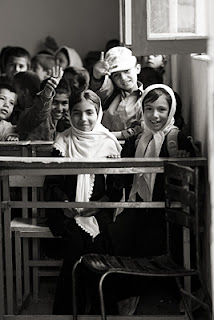
Sometimes even those who we consider good leaders make political mistakes, and that is exactly what I think Lee Bollinger, the president of Columbia University in New York, did a couple of days ago. It is surprising to me that a well educated man like Bollinger felt entitled to treat Mahmoud Ahmadinejad, the president of Iran, so badly. Do not take me wrong, it is not that I like Ahmadinejad, but as a basic rule of protocol, as a guest speaker of Columbia University, and a democratically elected president, he should have been treated better even if he is not able to inspire any warmer feelings from his host. But protocol is not the main reason for my claim for a better treatment for this president, there is an even more important reason. I would bet that Ahmadinejad, whose popularity had been falling down in his country due to several presidential campaign promises he has not accomplished, mixed with high inflation, will now regain popularity in Iran because he will be seen as a hero who stoically put up with the harsh treatment, not only from the leader of one of the most prominent colleges in this country but other public demonstrations against him at the “Devil’s nation of USA” as well.
What was Bollinger thinking when in his introductory speech he referred to Ahmadinejad as a "petty and cruel dictator”? Bollinger went even further with his attack: “When you have come to a place like this [referring to Ahmadinejad’s extremist ideas about the denial of the Holocaust and others] this makes you simply ridiculous, you are either bracingly provocative or astonishingly uneducated” When I heard this statement coming out from Bollinger, I could not believe my ears! In response, Ahmadinejad during his own speech, said: “Iranians treat guests with respect not with insults.” The news clips, show Ahmadinejad sort of smiling during the time he was being publicly humiliated by Bollinger.
Truth be told, the president of Iran is either crazy or stupid. I mean, in his speech at Columbia, he said things like: “in my country, there are no homosexuals like in your country”; as a response, you could hear the entire audience laughing in the back. It was kind of embarrassing. He also said things like… “In Iran, women are more respected than men because the restrictions imposed on them like dress and freedom of movement protect a woman’s honor, dignity and privacy!” As a woman, I just say give me freedom first and I can get the rest by myself without intervention from the government. Was he serious? Obviously, the man deserved the harsh words expressed by Bollinger but not at this time, they worked against the US. Sometimes, silence is necessary and even more productive as it would had been in this case; Ahmadinejad would had been the only “off-tune” note, so discordant in fact that not even his followers could not notice, but Bollinger took away part of the infamous “star” role from the president of Iran, helping him out politically at the same time.
[Photo: Remains of ancient Persia in what it was the city of Persepolis, in Iran]
EL FIASCO
Algunas veces incluso aquellos que consideramos lideres efectivos cometen errores politicos y eso es exactamente lo que yo creo que hizo Lee Bollinger, el presidente de la Universidad de Columbia en Nueva York hace un par de dias atrás. Me sorprende de verdad que un hombre educado como Bollinger se sintiera con el derecho a tratar tan mal publicamente al Presidente de Irán, Mahmoud Ahmadinejad. No me malentiendan, no es que me guste Ahmadinejad pero como una regla básica de protocolo por ser un orador invitado de la Universidad de Columbia ademas de un presidente democráticamente electo, debería haber sido tratado de una mejor forma aunque no inspire sentimientos más cordiales por parte de su huésped. Pero protocolo no es el principal motivo de mi queja por un mejor trato de este presidente; hay una razón más importante. Apostaría que Ahmadinejad, quien ha perdido popularidad en su proprio país debido a que no ha cumplido ciertas promesas de su campaňa presidencial, mezclado con una fuerte inflación, ahora ganará popularidad nuevamente en Irán porque será visto como el héroe que confrontó estoicamente el duro tratamiento de no sólo el líder de una de las universidades mas prominentes en este pais pero también demostraciones publicas en contra de su persona en “el país del Diablo, EEUU”.
Qué estaba pensando Bollinger cuando en su discurso de presentación se refirió a Ahmadinejad como un “dictador penoso y cruel”? Bollinger fué más allá inclusive con su ataque: “El tener su posición [refieriendose a las ideas extremistas de Ahmadinejad en cuanto a negación del Holocausto y otros] lo hace a usted simplemente ridículo, usted está provocando abiertamente ó es asombrosamente ignorante.” Cuando escuché estas palabras salir de la boca de Bollinger yo no lo podia creer! Como respuesta, Ahmadinejad durante su proprio discurso dijo: “Los iraníes tratan a sus huespedes con respeto no con insultos.” Los clips de noticias en televisión muestran a Ahmadinejad con una leve sonrisa en su rostro mientras estaba siendo publicamente humillado por Bollinger.
La verdad sea dicha, el presidente de Irán es loco ó estúpido. Digo ésto porque durante su discurso en Columbia, dijo cosas como: “en mi país no existen los homosexuales como en vuestro país”; tras lo cual se escuchó una carcajada general de la audiencia. Daba verguenza ajena. También dijo cosas como… “en Irán se respeta más a las mujeres que a los hombres porque las restricciones en el vestir y libertad de movimiento que se imponen en ellas protegen el honor, la privacidad y la dignidad de la mujer!” Como mujer no me cabe mas que decir: empezemos por la libertad primero, el resto lo puede lograr uno misma sin la intervención del estado. Estaba hablando en serio este tipo? Obviamente, el hombre merecía las duras palabras de Bollinger pero no en esta oportunidad, yo creo que estas se tornaron en contra de los EEUU. Algunas veces el silencio es necesario y más productivo, como hubiese sido en este caso; Ahmadinejad hubiese sido la única nota discordante a tal punto que incluso sus seguidores no podrían negarlo, pero Bollinger le quitó un poco del penoso “estrellato” al presidente de Irán y de paso le ayudó políticamente.
[Foto: Ruinas de la Antigua Persia en lo que fue la ciudad de Persepolis, en Iran]












